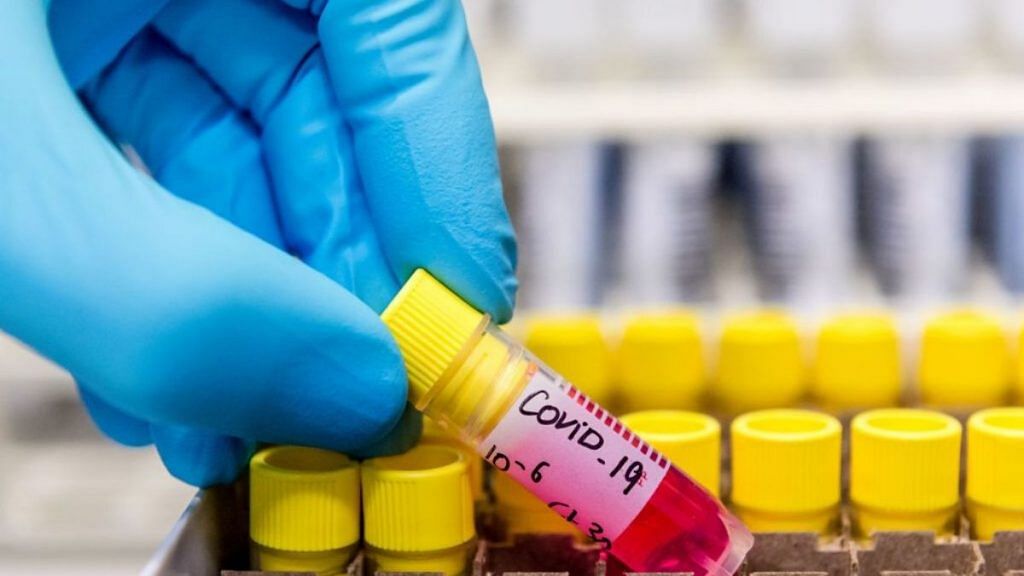New Delhi: Niti Aayog is ready with a plan to ramp up production of Covid-19 testing kits in India to expand diagnosis as well as boost exports, the government thinktank has told ThePrint.
The plan involves bringing scientists and laboratories in touch with private firms to produce millions of testing kits, including around 10 million rapid antibody tests that offer quick results. This will be done under a project called Consortium for affordable and rapid diagnostics (CARD), to be spearheaded by the NITI Aayog and the central government’s Department of Biotechnology.
“Not just healthcare companies, but private entities in the telecom and FMCG (fast moving consumer goods) sectors will be encouraged to make their supply chain and infrastructure available to deliver tests,” Anna Roy, a senior adviser at NITI Aayog, said.
Covid-19 testing is so far being carried out through RT-PCR (reverse transcription-polymerase chain reaction) tests, which involve the extraction of the virus’ RNA, or genetic code, and can only be conducted in laboratories, and antibody tests that are so far believed to offer just indicative results to be confirmed through RT-PCR tests.
Last month, the Indian Council of Medical Research (ICMR), the apex health research body, withdrew lakhs of rapid antibody testing kits imported from China after they were reportedly found to be faulty. However, while their efficacy remains a matter of research, rapid antibody tests can be performed at home and are thus seen as crucial to enhancing surveillance and detection in a pandemic situation.
Also Read: Are India’s poor social distancing? Niti Aayog to survey over 100 districts to find out
‘All obstacles will be addressed’
The first goal of project CARD will be to churn out at least 10 million or 1 crore rapid antibody tests for Covid-19 by July 2020. The final aim is to make India a diagnostic export powerhouse by the end of 2020. It also seeks to bolster India’s capabilities in manufacturing reagents, probes, primers, and other components needed for diagnostics.
“Under the project, all the obstacles to scale up production of testing kits will be addressed, regulatory processes will be streamlined and fast-tracked to ensure kits are ready for the market,” Roy said.
Procurement procedures will also be simplified, she added, to ensure there are no bottlenecks in the availability of testing facilities where they are required.
The project will involve private and public sector collaboration to set up test-delivery and administering systems in Covid-19 hotspots, said Dr Ajay Bakshi, a former neurosurgeon at AIIMS who is currently working with Niti Aayog on the project.
“This project aims to tear down walls that have prevented technology transfer, stymied innovation and limited collaboration in critical sectors of India’s society and economy,” he added.
Also Read: Why South Asia has 20% of world’s population but less than 2% of Covid-19 cases
India’s Covid-19 tests dependent on imports
India can currently conduct 1.25 lakh RT-PCR tests a day but the majority are conducted through imported kits.
“Nearly all Covid-19 tests done today in India use imported machines and most of the reagents… are hard to procure in light of the global demand. However, with this project, India will bring all the stakeholders on a common platform and milk the best out of them,” Bakshi said.
According to the latest list of authorised antibody testing kit manufacturers, issued by the government regulator Central Drugs Standard Control Organisation (CDSCO), 85 out of 95 — around 90 per cent — kits in use are foreign-made. “Similarly, 11 out of 21 (more than 50 per cent) ICMR-approved RT-PCR manufacturers are foreign,” The Indian Express reported Friday.
Also Read: Why India may not see the kind of Covid-19 outbreak rest of the world has seen
